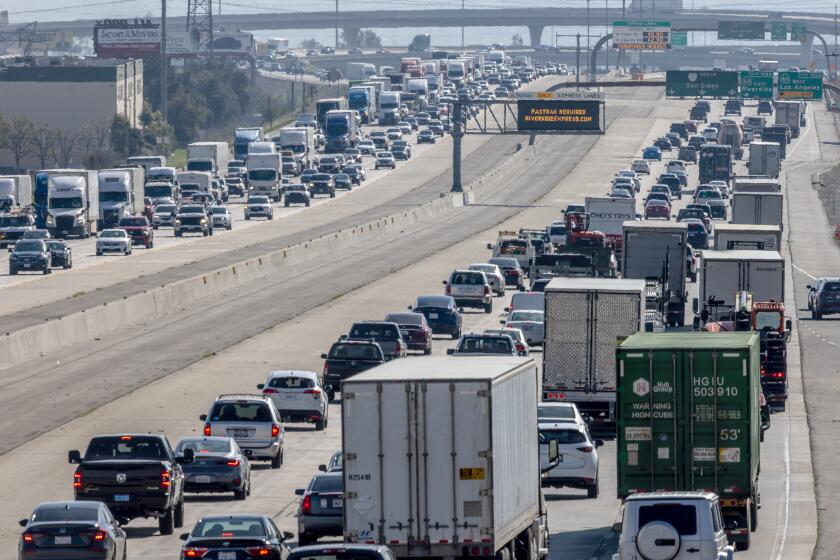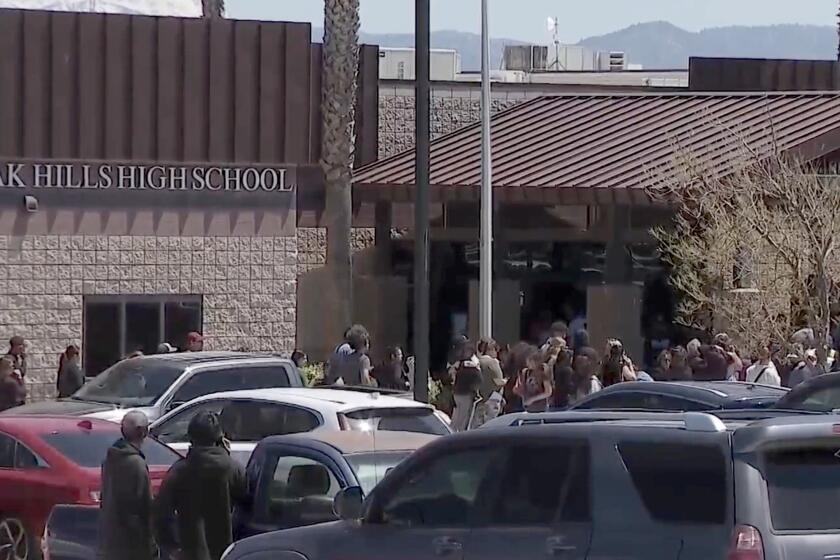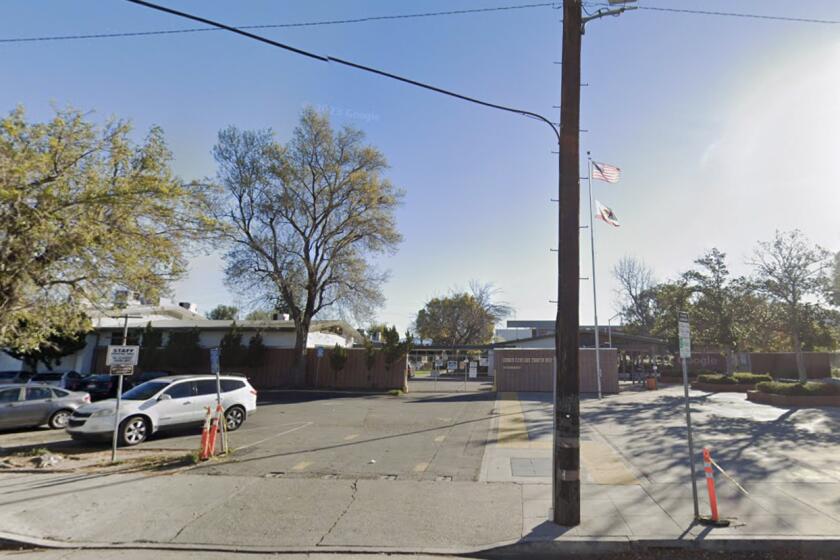Bishops in state oppose Prop. 8
California’s six most senior Episcopal bishops Wednesday unanimously declared their opposition to a constitutional amendment on the statewide November ballot that would ban same-sex marriage.
The bishops argued that preserving the right of gays and lesbians to marry would enhance the “Christian values” of monogamy, love and commitment.
“We believe that continued access to civil marriage for all, regardless of sexual orientation, is consistent with the best principles of our constitutional rights,” said the Rt. Rev. J. Jon Bruno, bishop of the Episcopal Diocese of Los Angeles.
Bruno, flanked at a news conference by fellow clergy members and gay and straight couples, added: “We do not believe that marriage of heterosexuals is threatened by same-sex marriage.”
By going on the record against Proposition 8, which would reverse the California Supreme Court’s decision in May to legalize same-sex marriage, the bishops waded into a volatile political and religious controversy.
Gay marriage has strained the Episcopalians’ international body, the Anglican Communion, with hundreds of bishops from Africa and elsewhere threatening to break away over attempts to change church doctrine and practice.
The issue has created theological fissures in other Protestant denominations, including Presbyterians and United Methodists, with some Methodist ministers in California pledging to perform wedding ceremonies in defiance of their national church.
Proposition 8 supporters, intent on protecting what they call a 5,000-year-old tradition codified in the Bible, are mobilizing forces across several religious groups.
The Protect Marriage Coalition announced plans last month for 1 million Catholics, Mormons, Jews, Muslims, evangelical Christians, Sikhs and Hindus to plant 1 million “Yes on Proposition 8” lawn signs in their frontyards. In addition, the coalition is sending volunteers door to door to speak with voters and planning an advertising campaign, to begin as early as the end of this month.
“Marriage is an institution for a man and a woman,” said Jeff Flint, the campaign’s co-chairman. “The institution of marriage around which society is constructed means less when it’s not the traditional definition.”
But in a joint statement, issued Wednesday at the diocesan headquarters in Echo Park, the six bishops said that “society is strengthened when two people who love each other choose to enter into marriage, engaged in a lifetime of disciplined relationship building that serves as a witness to the importance of love and commitment.”
The statement was signed by Bruno and Bishops Marc Handley Andrus, Barry L. Beisner, Mary Gray-Reeves, Jerry A. Lamb and James R. Mathes. (Three assistant bishops -- Chester L. Talton, Sergio Carranza and Steven Charleston -- also signed.)
The bishops concluded: “We believe that this continued access [to marriage] promotes Jesus’ ethic of love, giving and hope.”
While the Episcopal leaders agreed on the need to preserve the right of gay and lesbian couples to wed, they disagreed over how, and if, to conduct weddings, in light of the church’s Book of Common Prayer, which defines marriage as between a man and a woman.
According to the joint statement, some of the six bishops believe it is appropriate to allow priests to officiate at marriage ceremonies and pronounce blessings, while others want to wait to hear from the Episcopal Church’s governing body, the General Convention. It meets next in Anaheim in July 2009. (At its 2006 meeting, the General Convention passed a resolution opposing state or federal constitutional amendments that prohibit same-sex civil marriage.)
Mathes, bishop of the Episcopal Diocese of San Diego, said the Episcopal Church must alter language on same-sex marriage before priests begin officiating.
“I just don’t believe we have been authorized to do them,” Mathes said. “I am not keen on unilateral action.”
Andrus, bishop of the Episcopal Diocese of California, said he encourages couples -- straight or gay -- to marry in civil ceremonies and then receive a blessing in church. The compromise stops short of priests performing the rites of marriage for same-sex couples.
Andrus, whose diocese covers the Bay Area, said this practice allows him to honor the rights of gay and lesbian couples while keeping his diocese tethered to the Anglican fold. “We have recognized that we as a global body need each other,” he said. “This diocese, by its faithfulness to the larger body, could serve as a catalyst for change.”
The conflict over Proposition 8 is unfolding amid a wrenching dispute over homosexuality in the Anglican Communion, which has 80 million members worldwide.
Conservative bishops from Africa and other regions have balked at reform efforts by more liberal leaders, primarily from North America. The election of an openly gay bishop, V. Gene Robinson, to the Episcopal Diocese of New Hampshire in 2003 intensified the conflict.
Several hundred conservative bishops and archbishops boycotted the once-a-decade Lambeth Conference of Anglicans, held in July.
A month before that meeting in England, the conservatives met in Jerusalem. They decided to remain within the global communion but proposed a new council with the authority to create alternative provinces in places where church authorities failed, in the conservatives’ opinion, to follow the Gospel.
Episcopal leaders in California believe that acknowledging the rights of homosexuals to marry does follow the Gospel.
“We’re talking about our friends, our neighbors,” Abel Lopez, a priest with All Saints Episcopal Church in Pasadena, said at the news conference with Bruno. “These are people in our own families . . . people who deserve the [same] rights as anyone else.”
--
--
On latimes.com
Financial battle
To see how much money supporters and opponents of Proposition 8 have raised,
as well as who has donated and where they live, go to
latimes.com/prop8map.
More to Read
Start your day right
Sign up for Essential California for news, features and recommendations from the L.A. Times and beyond in your inbox six days a week.
You may occasionally receive promotional content from the Los Angeles Times.






